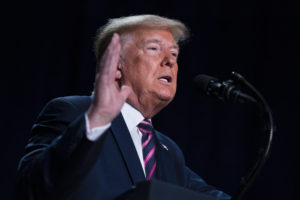Continuing Saga: The Fight to Reveal the CIA’s Torture Secrets
The Guardian released the second and third installments of its inside chronicle of the struggle between the CIA and the Senate over the 2014 report on torture from the Select Committee on Intelligence.
The Guardian released the second and third installments of its inside chronicle of the struggle between the CIA and the Senate over the 2014 report on torture from the U.S. Senate Select Committee on Intelligence.
Last Sunday, CIA whistleblower and Truthdig contributor John Kiriakou summarized the significance of the first installment in The Guardian’s serialized report, which follows Daniel Jones, a Senate investigator whom the CIA targeted:
The article provides great insight into the day-to-day machinations between the SSCI and the CIA, although no new details on the torture program per se.
What the article does provide, however, is proof that then-Attorney General Eric Holder and others conspired to keep the worst news of the CIA’s torture crimes secret. They conspired to protect the CIA’s most notorious torturers. Holder also worked hard to make sure that as little news of the torture program as possible was released to the American people.
Jones, a whistleblower in his own right, admits in the article that he (probably “illegally”) removed a document from the CIA that, in the end, formed one of the main points of the torture report: that the CIA tortured its prisoners with a level of brutality that was heretofore unknown, that the agency covered up the torture and that it lied to both the congressional oversight committee and the president about the extent of the program and its efficacy.
In the second installment, Guardian journalist Spencer Ackerman tells of how the CIA began “turning its spywork onto the elected officials tasked with overseeing it.”
On 17 December, the CIA sent its choice for its next top attorney, Caroline Krass, to the committee for a nomination hearing. …
During the hearing, Mark Udall, a Colorado Democrat, lit into Krass. Unexpectedly, Udall mentioned the existence of the Panetta Review in public for the first time, demanding the disclosure of the document. Among the reasons for Udall’s fervor: in August 2013, after the CIA had condemned the committee report in contradiction of the Panetta Review, its former chief lawyer Stephen Preston told Udall in writing that the agency provided the committee with “inaccurate information related to aspects of the [torture] program” – a major point the CIA was now disputing.
Jones was visible on the staff dias [sic] behind Udall. Hostetler walked out of the hearing.
“Then things totally went to hell,” Jones said.
Unbeknownst to Jones, Udall or Feinstein, the public reference to the Panetta Review so alarmed the CIA as to prompt a milestone event in its history. Since 2009, the CIA had maintained a firewalled network on which the Senate could view internal documents relevant to its torture inquiry. It was known as RDINet, for “rendition, detention and interrogation.” By mutual agreement, the CIA was not supposed to access the Senate’s side of the network for any reason aside from picayune IT help. But at least five agency officials would surreptitiously transgress the network firewalls, view the Senate investigators’ work, and reconstruct Jones’s emails. Their rationale, established in a subsequent internal investigation, was to determine if the Senate deliberately exploited an evident flaw in the architecture of the network to digitally acquire the Panetta Review – which they did not want the Senate to have.
It was an extreme step. After Congress overhauled the CIA in the 1970s, the agency was not supposed to spy on Americans domestically except in extremely circumscribed circumstances. Now it was turning its spywork onto the elected officials tasked with overseeing it.
“Every officer is clearly, I would say rigorously, trained that CIA is a foreign intelligence service. We have a legal mandate to conduct intelligence operations on non-American entities … It’s very clear, the distinction, and then elaborate, the working out of what may and may not be done,” said Glenn Carle, a retired CIA officer.
Carle continued: “For the agency to penetrate a firewalled network used by the United States Senate is flat criminal activity. There’s no discussion about it. I’m literally laughing. You can’t rationalize that.”
The third and final installment contains an evaluation by Jones of the Senate’s inquiry into torture.
… Jones considers the inquiry a success, one he attributes to the senators who took real political risks to back him and his team against the CIA.
“For those who worry that Congress is only dysfunctional, this is exhibit A to the contrary,” he said.
“This was a serious and high-stakes battle between two branches of government. And the legislative branch, in my view, ultimately won. I think our founding fathers would be very proud of Senator Feinstein and the others who worked to get this investigation completed and released.”
Read the first, second and third installments of The Guardian’s report.
—Posted by Alexander Reed Kelly.
Independent journalism is under threat and overshadowed by heavily funded mainstream media.
You can help level the playing field. Become a member.
Your tax-deductible contribution keeps us digging beneath the headlines to give you thought-provoking, investigative reporting and analysis that unearths what's really happening- without compromise.
Give today to support our courageous, independent journalists.









You need to be a supporter to comment.
There are currently no responses to this article.
Be the first to respond.